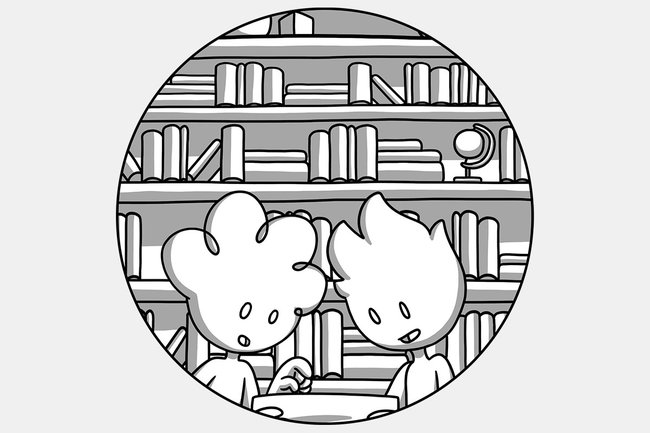Explaining Science with Comics
Natural Sciences Made Understandable for Students and School Pupils

In the St. Pölten University of Applied Sciences’ research project “Comixplain”, researchers use people’s tendency for storytelling and create comics that help students to better understand scientific concepts. The developed materials are also available to school teachers for their classes.
People like to tell and listen to stories. They do this not only to entertain and be entertained, but also to convey content and information. Thoughts and communication processes are connected to form stories in order to better express ideas and views and to render processes happening in the world tangible for themselves and for others.
In the research project Comixplain, researchers of the St. Pölten UAS use this human tendency for storytelling and create comics that help students to better understand scientific concepts.
The Benefit of Comics for Science Communication
“Many studies show that comics are very useful for conveying teaching and learning content to both children and adults – not only because it is a familiar medium, but also due to their unique combination of characteristics. Apart from a narrative structure usually found only in instructional videos, they contain visualisations and infographics and allow for a flexible spatial arrangement of elements. Readers can consume the content at their own pace, which is often not possible in a video”, explains UAS lecturer Victor Adriel de Jesus Oliveira from the St. Pölten UAS’ Institute of Creative\Media/Technologies who manages the project.
New Didactic Format
Comixplain has developed a new didactic format that uses comics to introduce students to content from the STEM disciplines (science, technology, engineering, mathematics).
“To do this, we focused mainly on teaching units where students are known to struggle with the content or where abstract concepts are supposed to be communicated. Comics can be helpful as supporting teaching material in these cases”, says Oliveira.
The content for the comics was developed by students and teachers together. All work steps were peer-reviewed, and the students were involved in the final evaluation step. Finally, it was tested how well the students grasped the presented content, and whether they could deal with and manage these new learning materials.
Instructions Available for School Teachers
At the end, the teams wrote instructions for how to use and where to apply the comics. All results and materials are available online free of charge. School teachers are free to use them in class as well.
Next Step: Community Engagement
For their next step, Oliveira and his colleagues intend to create a community that will provide new comics, translations, and applications.
Part of the community’s contributions is made up of Augmented Reality apps developed by students of the St. Pölten UAS’ Creative Media Summer School 2023. They are available for download directly from the Comixplain offer. The apps are compatible with Android devices and work by expanding the comic books of Comixplain to include additional content and animations.
Hundreds of Illustrations
The latest contribution is a brand new search interface that is supposed to help visitors search hundreds of illustrations by Comixplain made available free of charge. The search tool was developed by student Anna Blasinger.
All currently available comics were created by the project team including UAS lecturer Hsiang-Yun Wu and researcher Christina Stoiber. In addition, junior researcher Magdalena Boucher and student assistant Alena Ertl drew the comics.
Innovative Project as Part of the St. Pölten UAS’ Strategy
The project received funding from the St. Pölten UAS as an internal project within the framework of the UAS' Strategy & Innovation Call 2022 where staff members and students were encouraged to submit project ideas supporting the UAS strategy.

FH-Prof. Dr. Victor Adriel de Jesus Oliveira , MSc
Deputy Academic Director Creative Computing (BA) Lecturer Department of Media and Digital Technologies